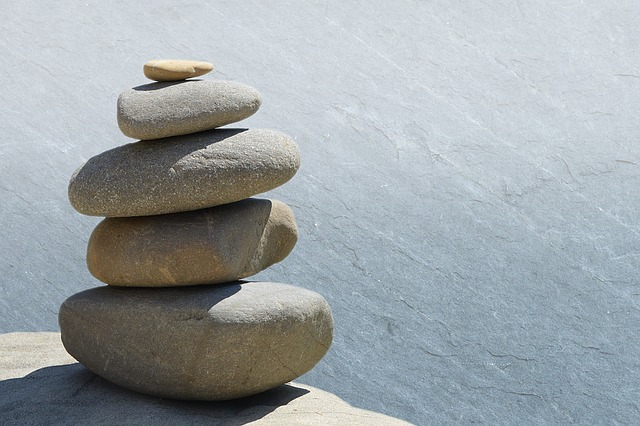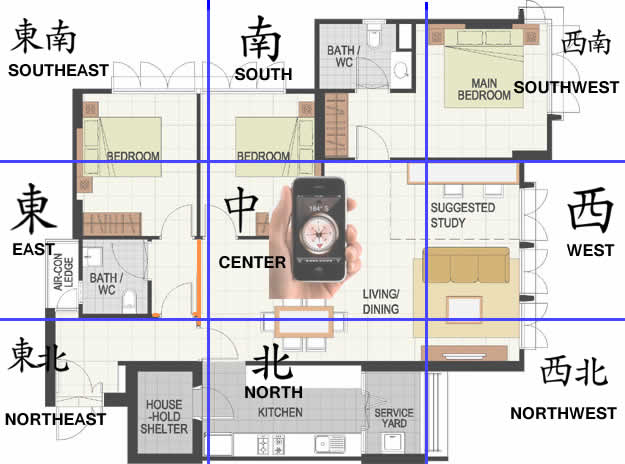Feng Shui – What is it and Why?

We’ve all heard of Feng Shui, but did you know that it can help you sell your home? Feng shui literally translates to “wind and water” and is a centuries-old philosophy, originating in China that was used in homes and urban planning to create a calm, harmonious environment and improve the flow of “qi” or positive energy. In modern homes, this flow is achieved by the layout and placement of furniture and other decor elements (such as mirrors and plants). In feng shui-styled settings, the Five Elements of wood, fire, earth, metal, and water, are used in combination to align a building, site, or city into a healthy balance.
 Floor Plan of your home based on Feng Shui. Image source: Feng Shui Beginner
Floor Plan of your home based on Feng Shui. Image source: Feng Shui Beginner
Feng shui principals can attract buyers and help ease the sometimes-emotional act of selling a home.
Here are a few to consider when buying or selling your next home.
- What direction does the home face? Does it face north, south, east or west or a combination? Some buyers will purchase a house based on their individual, auspicious direction.
- Whether the house is on a “T” street. Negative energy is created when the street ends directly in front of the house.
- The interior staircase faces the front door. This is considered negative as it allows ch’i to flow out the door.
- Doors to the bathrooms should be kept closed at all times and not be visible from the front door.
- Colors play an impact on your energy so do some feng shui research before painting any rooms.
- Items with sharp edges should be hidden, including any butcher-block knife sets.
- Dried flowers are considered extremely bad feng shui. Silk flowers are acceptable, but live potted flowers or plants are best.
- Mirror placement is key. A large mirror in a dining room reflecting the food on the table and is very positive, while a mirror across from a bed in a bedroom creates negative energy.
